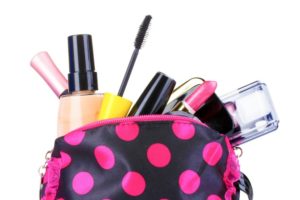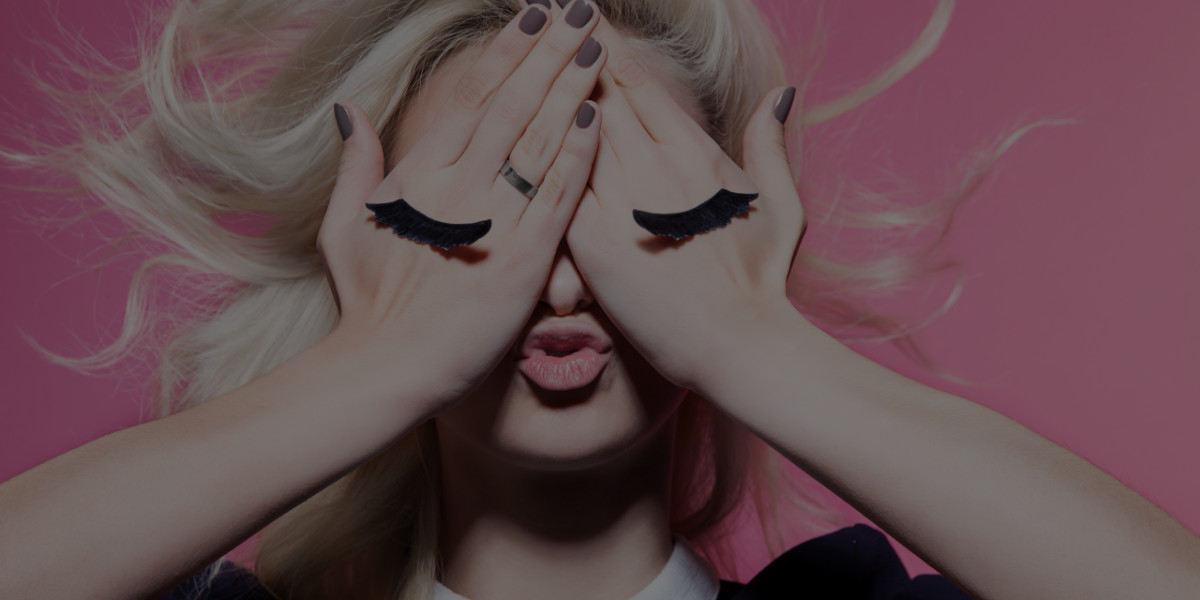You’ve decided that getting your makeup artistry certification is the best choice for you to get into the makeup world—fantastic! Whether you’re enrolled in the Makeup Artistry course or the Master Makeup Artistry course, you’re going to be set up with your own makeup kit! But not everything you’ll need will be found in your first makeup kit, especially if you want to go above and beyond while you have a professional makeup artist as a tutor.
Start taking notes! We’ll take you through what should be included in a professional makeup starter kit for the purposes of both your course and your career.
Creating a Makeup Kit:

When you’re first starting out, putting all your money into Tom Ford lipsticks and other luxury makeup brands may not be the best idea. You’ll be spending lots of time doing and re-doing all your looks since you’re still learning and perfecting your art. Drugstore brands are a better bet for your budget when you start building your kit. Remember, some drugstore products can work just as great as their high-end counterparts without the hefty price tag.
PRO TIP: Buy new products as you need them. Building a professional makeup kit can take time. If you buy absolutely everything right away, a lot of it may just sit around and eventually expire before you’ve had a chance to use it.
Brushes

A full Brush Set or 6 essential brushes will allow you to apply virtually any type of makeup on a client’s face! If you find that using a sponge for applying face makeup create better results for you, feel free to include that in your kit, too! Just remember to thoroughly clean your makeup sponge after each use.
- Foundation Brush (Use for foundation and concealer)
- Lip Brush (Use for lip products and blending)
- Angle Brush (Use for eyebrows and eyeliner)
- Eyeshadow Brush (Use for base, lid, highlight, and crease eyeshadows)
- Blending Brush (Use for blending eyeshadow and applying highlighter)
- Blush Brush (Use for blush, setting powders, highlight, and contour)
- Brush cleaning supplies such as conditioning spray or baby shampoo
Primer
Primers should be applied after you moisturize clean skin to prep it for makeup. Primed skin is the perfect canvas for makeup as it will make the makeup you apply last longer, be more vibrant, and appear smoother.
There are a million different primers on the market. Special primers such as a mattifying face primer will keep shine at bay, while brightening primers will give the skin a healthy glow. If you’ve ever encountered a client with oily eyelids, eye shadow primer will save the day and keep the colors popping in every photo. In addition to your standard face primer, stock one of each of these three primers in your kit.
Face

Having a range of foundation and concealer colors is essential. Chances are, you’ll never encounter someone with the same skin tone or complexion twice (unless it’s a repeat client!). You’ll have to have a wide range of shades available (10 or more shades), but even that may not be enough. Make sure you have a palette on hand to mix different colors together to create a customized shade. It may be more work, but your clients will thank you for it.
Some people might have oily skin and some might have dry skin. Make sure that your foundation comes in a variety of different formulas and finishes. Consider cream, liquid, pressed powder, and loose mineral powder foundations to accommodate various skin types.
PRO TIP: Cream foundations can be really versatile! They can double as concealer or can be mixed with facial moisturizer for sheer to medium coverage.
You might also benefit from a color correcting wheel. These palettes contain green, purple, salmon, and yellow colors to correct any discoloration on the skin using complimentary colors.
Setting Powder
To set the makeup, consider having around 6 different shades of setting powder and one translucent powder. Look for a translucent powder that’s mica- or silica-based.

Blush, Contour and Highlight
As for blush, contour, and highlight products, it may be best to invest in some big palettes. Again, these products come in powder, cream, and even liquid stain forms. Try for at least 8 powder blush shades, 5 cream blush shades, 4 powder/cream bronzer shades, 1 powder/cream contour palette, and 1 powder/cream highlight palette.
Eyes
When it comes to the eyes, the possibilities are endless—as long as you’ve got a well-stocked kit, that is! For show-stopping eyes, make sure your kit has:
- Neutral powder and/or cream eyeshadows (think browns, beiges, pale pinks, etc.)
- Dark powder and/or cream eyeshadows (think deep browns, greys, black, etc.)
- Light powder and/or cream eyeshadows (think white, champagne, etc.)
- 10 extra bright and bold shades
- Loose pigment powder
You’ll also need eyeliners (liquid, gel, pencil, kohl), plus about 10 mascaras in different shades and formulas.
Brows

For brows, you’ll find that gels, powders, and pencils dominate the market. The brow section of your kit should include a brow powder palette, 6-8 brow pencil shades, 3-4 tinted brow gels, and a clear brow gel to prevent stray hairs from flying out of place.
Lips
Along with the eyes, lips are the feature that demands attention. Invest in a lipstick palette with a range of colors. Stock your kit with 6-8 shades each of liquid lipstick, lip gloss, and lip stain. Don’t forget lip liners to match your other lip products, plus a moisturizing lip balm!
PRO TIP: When starting out, choose lip shades that will be universally flattering. How often will you really be reaching for that metallic blue shade for your clients? Invest in colors like pinks, pale beiges, brown neutrals, peaches, plums, and reds.

Additional Essentials
While the products that go on the face are definitely the stars of the show, don’t forget about all the other tools that help bring a look to life. Especially if you want to become a freelance makeup artist, you’ll have to have tons of spoolies and cotton swabs on hand so you don’t contaminate your products and create breakouts or infections on your clients. Here’s our list!
- Hand sanitizer
- Makeup cape
- Eyelash curler
- Facial moisturizer
- Disposable wands (spoolies)
- Cosmetic spatulas
- Mixing palette
- Blending sponges
- False lashes
- Black and clear lash adhesive
- Tweezers
- Finishing spray
- Rubbing Alcohol
- Greasepaint
- Cosmetic glitter
- Glue stick
MAKEUP REMOVAL
Whether you’re removing a client’s pre-existing makeup or fixing up a mistake, makeup remover is a must-have for your kit. Keep these things on hand:
- Eye makeup remover
- Gentle makeup remover
- Facial cleansing cloths
- Cotton balls and swabs
You won’t build your kit overnight…

You do not need every single one of these products to have a completely functioning professional kit. The products you use will depend on the assignment, the model you work with, and your personal preference of product. This list of items will help to guide you in creating a well-rounded professional kit fit to create a variety of looks, including everyday makeup, evening makeup, bridal makeup, fantasy makeup, runway makeup, and more.
